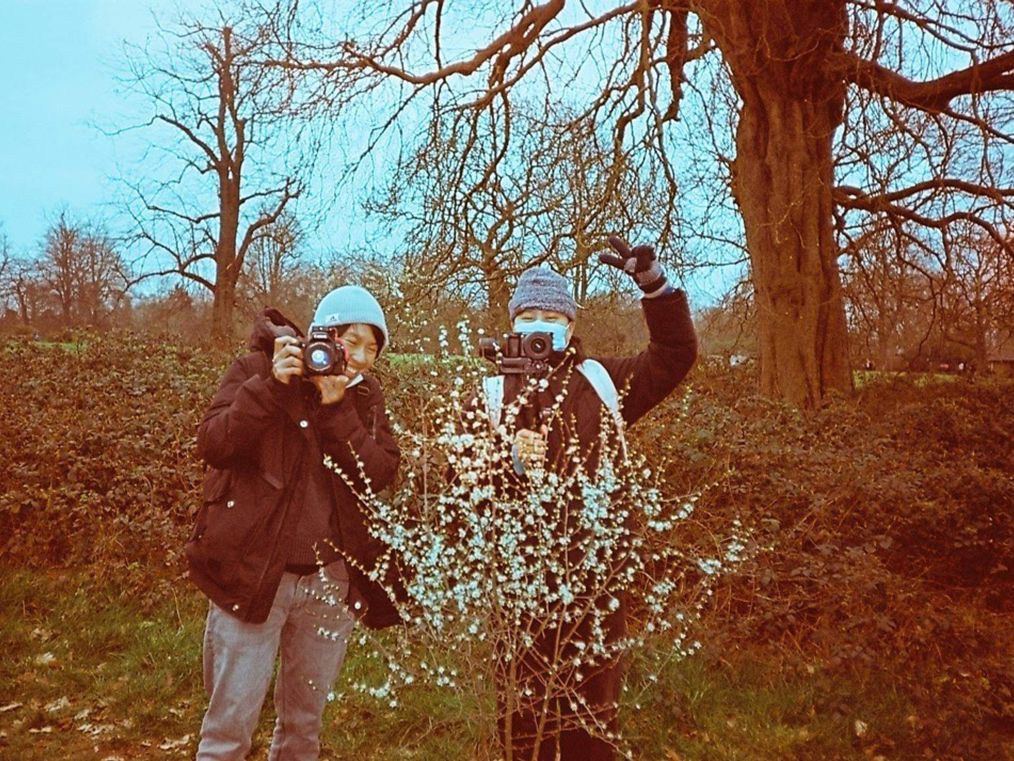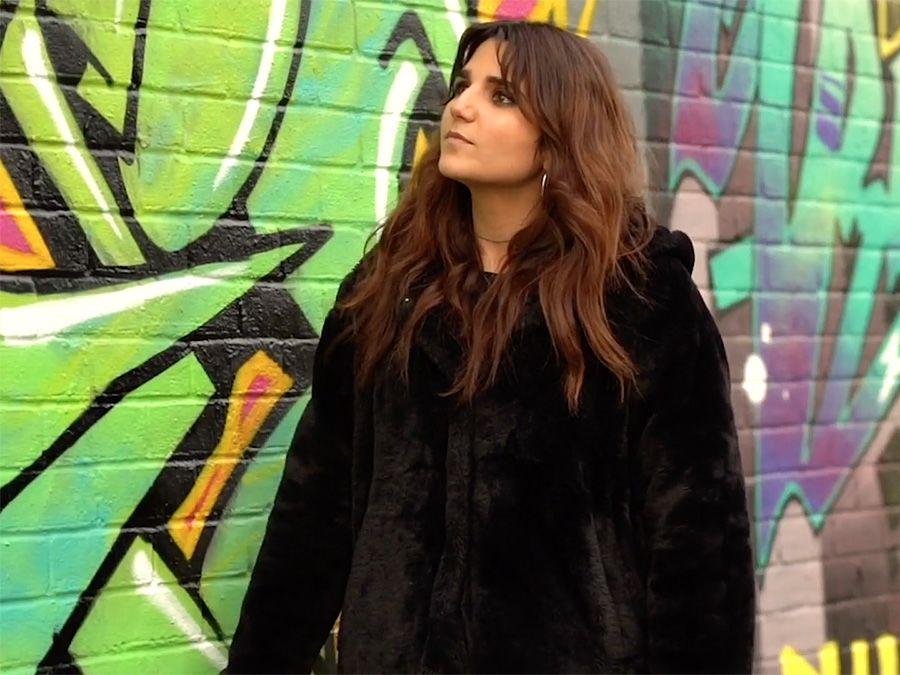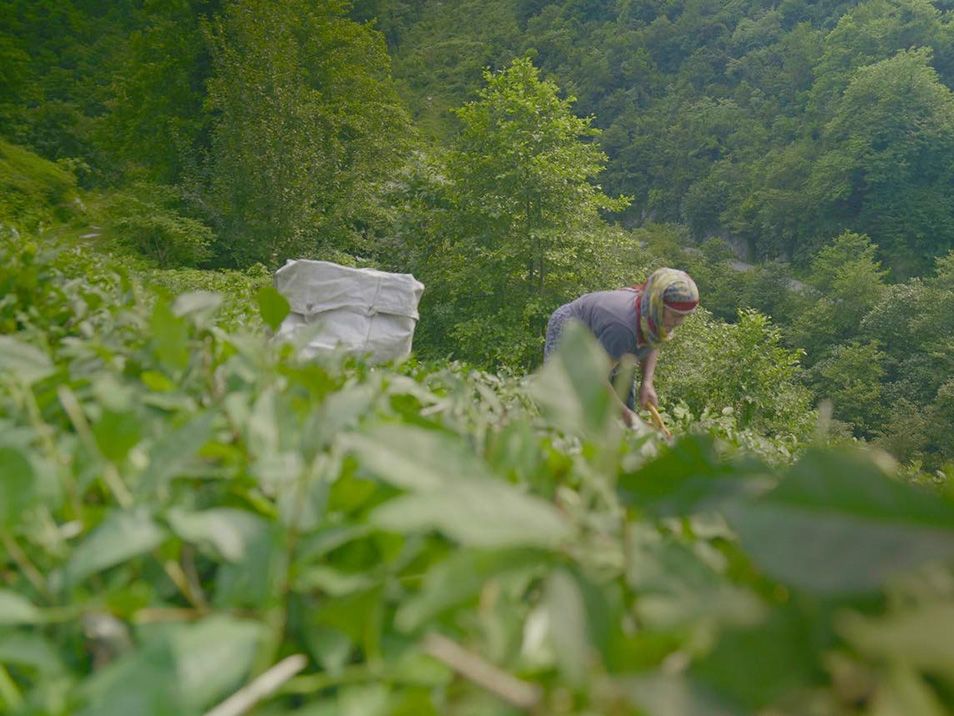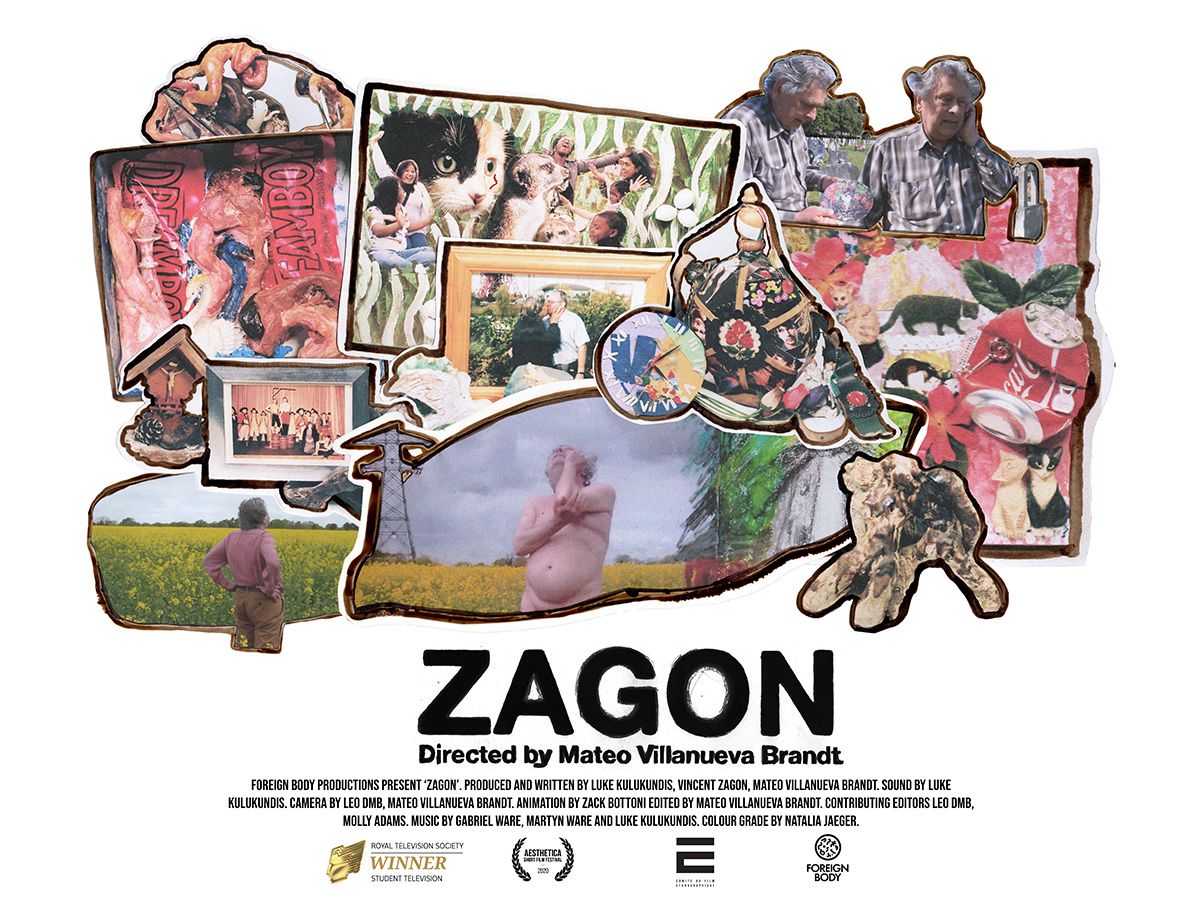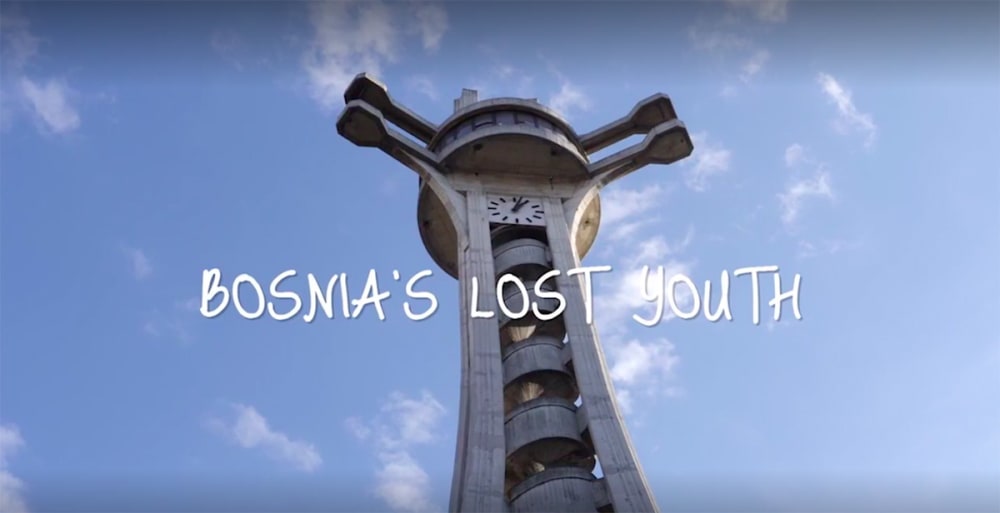
Graduate Voices: Teodora Djukaric
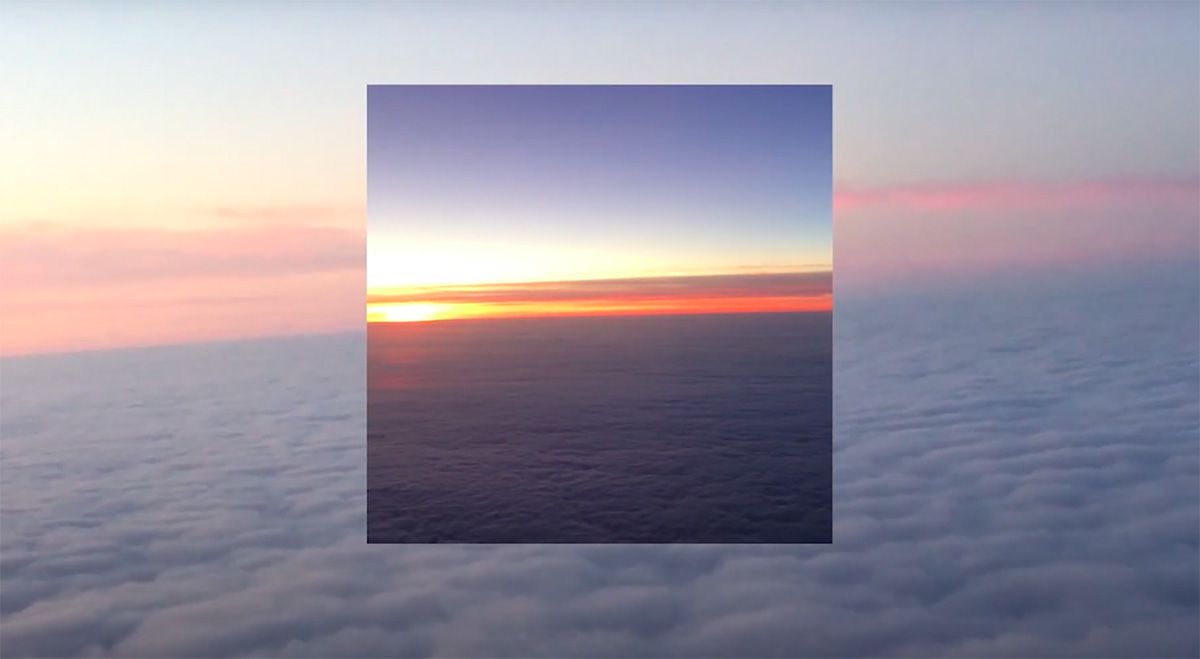
- Written byChloe Murphy
- Published date 15 February 2022

At London College of Communication (LCC), our future-facing MA Television course supports students to develop the skills they need to design and produce great factual programmes within an ever-evolving media landscape.
Taught by experienced practitioners, they work across both production and development, exploring the intensive research and critical analysis offered by industry intelligence to understand the impact of a contemporary digital revolution on production, distribution and consumption.
As streaming giants like Netflix, Amazon Prime, YouTube and TikTok rise to sit alongside traditional broadcasters and pay networks, students are encouraged to develop portfolios that consider what television means, who it’s for, and what it might become.
Teodora Djukaric
Filmmaker Teodora Djukaric graduated from MA Television in 2021.
Fluent in 4 languages, she achieved her undergraduate degree at the University of Zurich before moving to London and joining LCC. Now based in Germany, her work as a creative practitioner explores areas ranging from production, direction and camera operation to screenwriting and editing.
We caught up with Teodora to discuss collaboration in the screen industries, her experience of working in a European production company, and the importance of evolving your creative practice in line with shifting audience behaviours.
URTP, James Blake | WILL ROSS x Teodora Djukaric (Editor)
What inspired your interest in television?
I’ve always been interested in the film and TV industries, and my BA degree was in media, communications and film science.
Having experienced an exchange semester in Hong Kong, I started to take more creative classes such as new media design, video production and documentary film, which made me realise that I wanted to pursue a career in film and TV production.
Tell us about your creative practice – how do you create your work, and what inspires you?
Currently, I’m an assistant producer at Megaherz GmbH, a video production service in Munich. My time there has helped me to understand that one of the most important aspects of developing a good project involves working with a good, collaborative team.
I also work on independent projects with creatives from all around the world who I’ve met through platforms like Daisie and The Dots. For these kinds of projects, I keep an ‘Idea Book’ where I write down all of the ideas that come to my mind. Even if I don’t have the resources to explore them further at a particular time, the ideas remain and can be realised in another moment of life.
Generally, I don’t follow a specific approach within my practice, but I do know that when I’m editing a project, I sometimes have to ‘kill my darlings’ to create a better red thread for my storyline.

Why did you decide to apply to MA Television?
I see a great future for television: through the growth of streaming services and great demand for serial formats, creatives in the industry are changing its aesthetics, standards, and quality. Since my background is in media, communication, and film, I wanted to get a better understanding of the television industry in particular, so chose to study at LCC.
How did you course support your development as a practitioner?
The course offered great support in many ways. We had sessions every week to talk about the process of developing our final MA film, and there were also guest lectures from producers and show runners who gave us useful insight into the UK television industry.
What were some of the major highlights from your time at LCC?
One of my main highlights was a panel conversation on the future of television, where we discussed topics such as streaming services as well as the diversity within the industry.
However, I think my biggest highlight was the creation of my MA film, Bosnia’s Lost Youth, where I travelled around Bosnia for 3 months to interview several young people on current situations in the country.
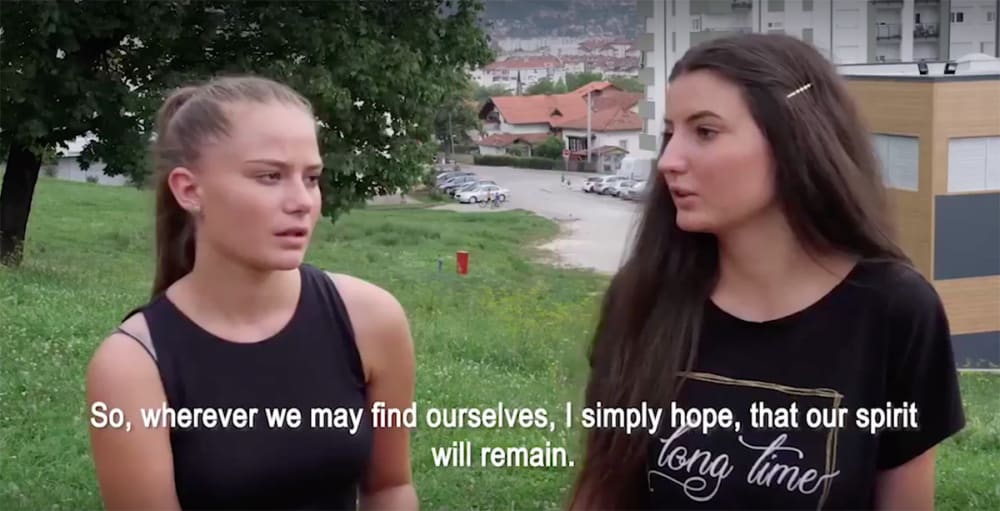
How did you take your first step into the professional world after graduating from LCC?
There’s a job platform in Germany named Crew United, which I kept an eye on. I spotted a post for an internship from Megaherz GmbH and decided to apply because they produced a famous German kids TV show, Willi Wills Wissen (Willi Wants to Know), which I’d absolutely loved.
Megaherz mostly focuses on factual content and documentaries, and I also liked that the company are able to produce a whole series in-house: from pre-production (pitch, editorial) to production and editing.
What kinds of activities did you take part in through your internship?
I was able to work as a production assistant on a local cooking TV show throughout the summer, where I took care of the cast, helped with the set design and organised the production schedule.
I also had opportunities to look for suitable locations with specific aesthetics for a Netflix YouTube project, research interesting protagonists for a travel series, and plan the set design and costumes for a kids’ show host.
One of my biggest tasks involved giving editorial support to a pitch for a balcony makeover TV programme.
How have you been able to use the skills and knowledge gained on your MA within the professional world?
When I helped to develop a TV pitch, it was particularly great to have experience from writing essays and pitches during my time as a student.
Moreover, I like that my course gave us an insight into how the industry works, and it’s been helpful to know what to expect.

What are your future plans?
My plans are to keep moving forward in this sector. I’m now working as an assistant producer at the same company and learning so many insightful production processes. In the future, I’d like to work actively as a producer and director as it would be great to explore the fictional side of the film and television industry.
I’m also planning to re-edit my MA film and submit it to a number of festivals.
What advice would you give to prospective students who are interested in exploring the world of television?
My advice would be for you to be proactive in developing your own creative path. Meet with other creatives who can enhance your skills and potentially collaborate with you during your MA projects. The television industry is constantly changing and reshaping, and consumers are changing as well. Streaming services have revolutionised how we consume content as TV shows become increasingly personalised and convenient, so being able to exchange skills and knowledge with others is key.
The most important advice I’d give is also to enjoy the production process, because every step is so crucial and important: from creating a pitch, casting a crew and finding locations to organising a production schedule, filming and editing.
Related links:
- Find out more about MA Television at London College of Communication.
- Explore the latest work from MA Television students on the UAL Graduate Showcase.
- Learn more about the work of our Screen School.
